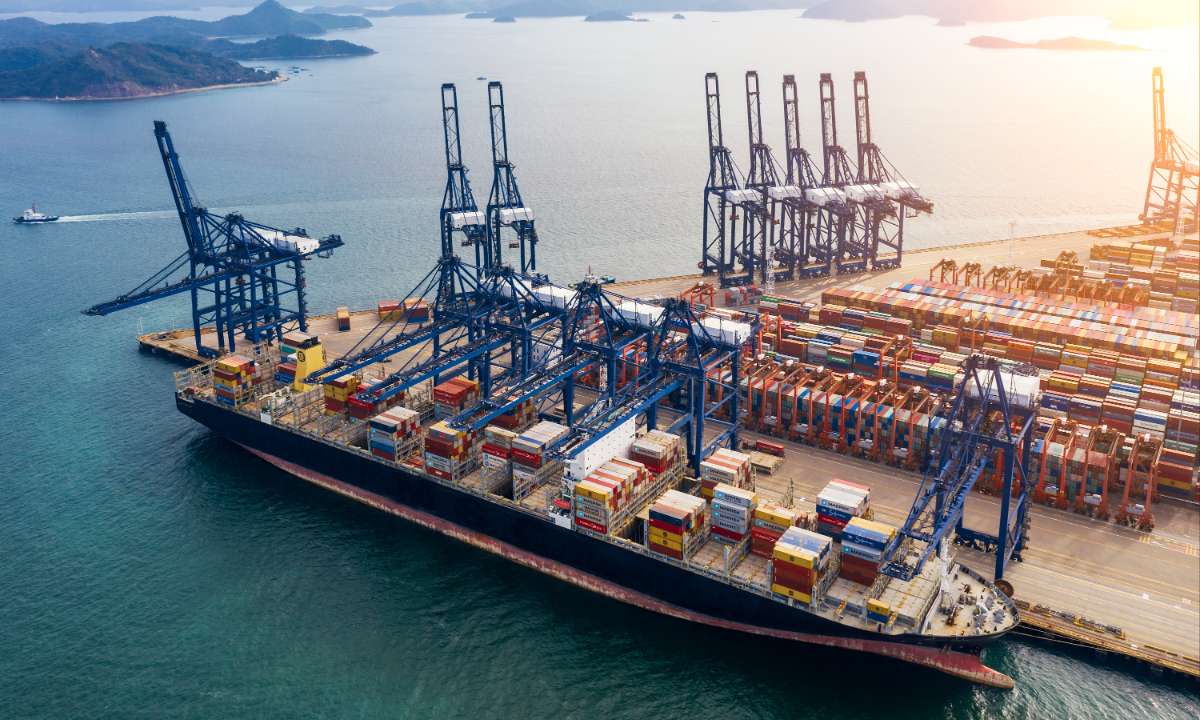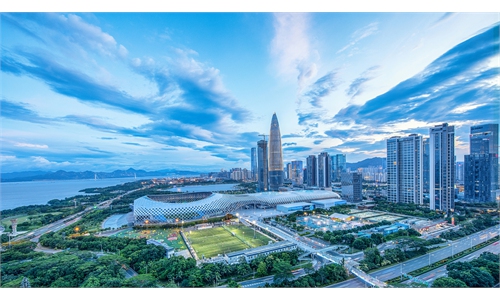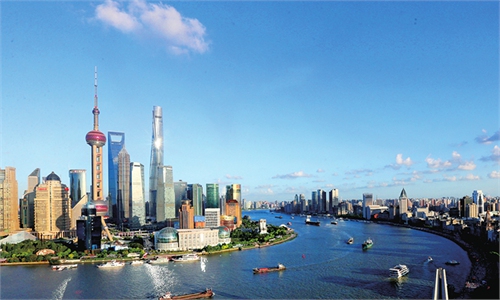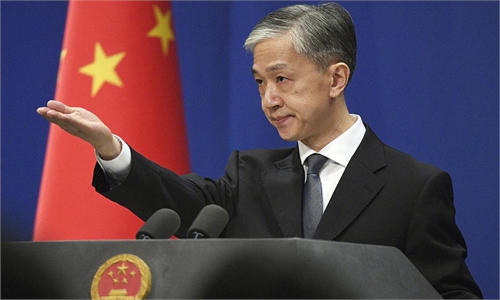IMF's downgrading of growth outlook does not reflect full resilience of Chinese economy

Yantian Port in Shenzhen, South China's Guangdong Province Photo: VCG
The International Monetary Fund (IMF) on Tuesday further downgraded its growth forecast for China this year to 4.4 percent, well below the 5.5 percent GDP growth target set by China at the beginning of the year.
Before the IMF's forecast, international financial institutions like UBS Group AG, Barclays Plc, Standard Chartered Plc and Bank of America Corp have all lowered their forecasts for China's full-year economic growth to a range of 4.2 to 5 percent.
Admittedly, after beating outside forecasts with a 4.8 percent growth in the first quarter, China's economy still faces strong headwinds as it is ramping up efforts to drastically reduce COVID-19 infections in Shanghai, while simultaneously managing to promote full resumption of production in the country's largest industrial hub. To realize the goal of 5.5 percent GDP growth, China needs to deal with more challenges this year.
But the situation is far less severe than some Western media outlets have exaggeratedly portrayed. Instead of hindering the economic recovery as pessimists claimed, China's effective "dynamic zero-COVID" policy will pave the way for all sectors of the economy to fully realize their potential for economic recovery in the rest of the year.
Facing a ferocious resurgence of COVID-19, it is imperative for China to explore the way to reach a balance between resumption of production and putting the epidemic under control as soon as possible in Q2. Only in this way can the country stabilize the economy against mounting pressures.
To help businesses to get back to normal and support consumption, relevant departments have been actively taking concrete efforts to address the outstanding issues including logistics disruptions.
A national teleconference on Monday on the efforts to keep supply and industrial chains stable underscored the struggle to guarantee freight transport and business cycles. On the same day, China's central bank and State Administration of Foreign Exchange issued 23 measures to provide financial support to entities that are in difficulties caused by epidemic.
With the timely introduction of fostering economic policies by various departments, Shanghai and other places affected by the epidemic are promoting the resumption of work and production in an orderly manner while vigorously fighting the virus.
The delivery capacity of some key e-commerce platforms in Shanghai recovered to about 80 to 90 percent of the pre-epidemic level on Tuesday, as local authorities set up a "whitelist" for key firms and riders to resume work and deliver essential supplies to residents under strict anti-epidemic management.
As China's Ministry of Industry and Information Technology said on Tuesday, the joint "one enterprise, one policy" and "one industrial park, one policy" are required to actively and orderly promote the resumption of production of key enterprises, like the Tesla's Shanghai Gigafactory, which resumed work the same day, Xinhua News Agency reported.
Since the COVID-19 pandemic, China's economy has demonstrated solid foundations, strong resilience and has beaten outside forecasts again and again. In 2020, China became the only economy in the world to achieve positive growth with effective measures to fight the epidemic and timely resumption of work and production. China's economy has exceeded broad expectations again in the first quarter of 2022.
All these show that the Chinese economy's long-term positive foundations have not changed. Against the sluggish global scenario, the economy still has the momentum for sustained recovery and strong resilience.
As China works out a balance between epidemic prevention and economic recovery, the foundations and resilience of China's economy this year will allow to withstand the test of the epidemic and once again exceed outside expectations.
The author is an editor with the Global Times. bizopinion@globaltimes.com.cn



